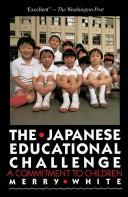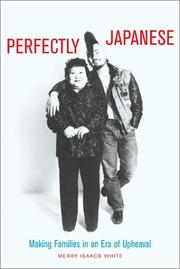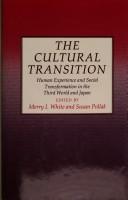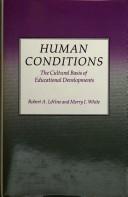| Listing 1 - 9 of 9 |
Sort by
|

ISBN: 002933800X Year: 1987 Publisher: New York : London : Free Press ; Collier Macmillan,
Abstract | Keywords | Export | Availability | Bookmark
 Loading...
Loading...Choose an application
- Reference Manager
- EndNote
- RefWorks (Direct export to RefWorks)
Education --- -Education --- -Children --- Education, Primitive --- Education of children --- Human resource development --- Instruction --- Pedagogy --- Schooling --- Students --- Youth --- Civilization --- Learning and scholarship --- Mental discipline --- Schools --- Teaching --- Training --- Aims and objectives --- -History --- History --- -Aims and objectives

ISBN: 9780520235052 0520936590 9786612762734 1282762737 9780520936591 0585466106 9780585466101 9780520217546 0520217543 0520235053 1597348015 9781597348010 0520217543 0520235053 661276273X 9781282762732 Year: 2002 Publisher: Berkeley University of California Press
Abstract | Keywords | Export | Availability | Bookmark
 Loading...
Loading...Choose an application
- Reference Manager
- EndNote
- RefWorks (Direct export to RefWorks)
Are Japanese families in crisis? In this dynamic and substantive study, Merry Isaacs White looks back at two key moments of "family making" in the past hundred years -- the Meiji era and postwar period -- to see how models for the Japanese family have been constructed. The models had little to do with families of their eras and even less to do with families today, she finds. She vividly portrays the everyday reality of a range of families: young married couples who experience fleeting togetherness until the first child is born; a family separated by job shifts; a family with a grandmother as babysitter; a marriage without children.
Families --- J4170 --- J4000.90 --- J4330 --- Japan: Sociology and anthropology -- family --- Japan: Social history, history of civilization -- postwar Shōwa (1945- ), Heisei period (1989- ), contemporary --- Japan: Economy and industry -- demography, population theory --- 20th century. --- anthropology. --- contemporary families. --- demographic studies. --- family making. --- family models. --- family relationships. --- family. --- global powers. --- historical. --- japan. --- japanese families. --- japanese history. --- marriage and family. --- meiji era. --- modern history. --- modern japan. --- nonfiction study. --- nontraditional families. --- postwar japan. --- social customs. --- social studies. --- sociologists. --- sociology. --- students and teachers. --- textbooks. --- traditional families.

ISBN: 0710205724 9780710205728 Year: 1986 Publisher: Boston Routledge and Kegan Paul
Abstract | Keywords | Export | Availability | Bookmark
 Loading...
Loading...Choose an application
- Reference Manager
- EndNote
- RefWorks (Direct export to RefWorks)
Social change --- Social role --- Ethnopsychology --- Educational anthropology --- Cross-cultural studies --- -Social role --- -Role, Social --- Social psychology --- Social status --- Change, Social --- Cultural change --- Cultural transformation --- Societal change --- Socio-cultural change --- Social history --- Social evolution --- Cross-cultural psychology --- Ethnic groups --- Ethnic psychology --- Folk-psychology --- Indigenous peoples --- National psychology --- Psychological anthropology --- Psychology, Cross-cultural --- Psychology, Ethnic --- Psychology, National --- Psychology, Racial --- Race psychology --- Psychology --- National characteristics --- Campus cultures --- Culture and education --- Education and anthropology --- Anthropology --- Culture --- Education --- Philosophy --- Educational anthropology. --- Ethnopsychology. --- Cross-cultural studies. --- -Cross-cultural studies --- Role, Social --- Social change - Cross-cultural studies --- Social role - Cross-cultural studies --- Role (Sociology)

ISBN: 0710205686 Year: 1986 Publisher: New York (N.Y.): Routledge and Kegan Paul
Abstract | Keywords | Export | Availability | Bookmark
 Loading...
Loading...Choose an application
- Reference Manager
- EndNote
- RefWorks (Direct export to RefWorks)
Educational anthropology --- Education and state --- Education --- Social change --- Social aspects
Book
ISBN: 0520393007 9780520393004 Year: 2023 Publisher: Oakland, California : University of California Press,
Abstract | Keywords | Export | Availability | Bookmark
 Loading...
Loading...Choose an application
- Reference Manager
- EndNote
- RefWorks (Direct export to RefWorks)
"From the origins of agriculture to twenty-first century debates over culinary authenticity, Ways of Eating introduces readers to world food history and to the practice of food ethnography. By engaging ethnographic vignettes and historical chapters, the authors offer new ways to think about food in relation to its natural and cultural histories. In addition to offering new intellectual tools, starting-points are provided for future reading ina wide variety of subjects, from the European spice trade to the Columbian Exchange, from food and gender to ethnographic methodology. Food studies are made vivid by stories like the ones in this book--stories of Scottish peat-cutters, women beer-makers, and Japanese knife-forgers"--
Food --- History. --- agriculture. --- cooking technique. --- cultural anthropology. --- dining. --- experience of eating. --- farm to table. --- foodways. --- global food culture. --- globalization. --- history. --- modern food world. --- philosophy. --- policy. --- practice. --- processing. --- production. --- technology. --- tools.
Book
ISBN: 9783034318303 3034318308 Year: 2015 Publisher: Oxford Peter Lang
Abstract | Keywords | Export | Availability | Bookmark
 Loading...
Loading...Choose an application
- Reference Manager
- EndNote
- RefWorks (Direct export to RefWorks)
Culture diffusion --- Culture and globalization --- Technological innovations --- Japan --- Civilization --- Western influences.
Book
ISBN: 3035397414 3035307679 Year: 2015 Publisher: Oxford, [England] : Peter Lang,
Abstract | Keywords | Export | Availability | Bookmark
 Loading...
Loading...Choose an application
- Reference Manager
- EndNote
- RefWorks (Direct export to RefWorks)
Assembling Japan focuses on Japan's modernization as a long-term process that is reliant on changing technology and that has led to the nation's full engagement with the global system. This process forms a complex field of tensions, full of interesting dynamisms and synergies that can be best understood through the book's methodology: anthropological analysis combined with historical contextualization. The approaches in this collection are manifold. Some chapters examine the themes of modernity, technology and Japan's global experience though popular culture, from reggae to football, from television to film. Other topics include coffee, travel, economics, cultural politics and technological innovation in the field of robotics. All of the contributions aim to show how these global interactions have occurred and continue to take place in twenty-first-century Japan.
Culture diffusion --- Culture and globalization --- Technological innovations --- Japan --- Civilization --- Western influences.
Book

ISBN: 9781501731112 Year: 2018 Publisher: Ithaca, NY
Abstract | Keywords | Export | Availability | Bookmark
 Loading...
Loading...Choose an application
- Reference Manager
- EndNote
- RefWorks (Direct export to RefWorks)
Digital

ISBN: 9781501731112 Year: 2018 Publisher: Ithaca, N.Y. Cornell University Press
Abstract | Keywords | Export | Availability | Bookmark
 Loading...
Loading...Choose an application
- Reference Manager
- EndNote
- RefWorks (Direct export to RefWorks)
| Listing 1 - 9 of 9 |
Sort by
|

 Search
Search Feedback
Feedback About UniCat
About UniCat  Help
Help News
News